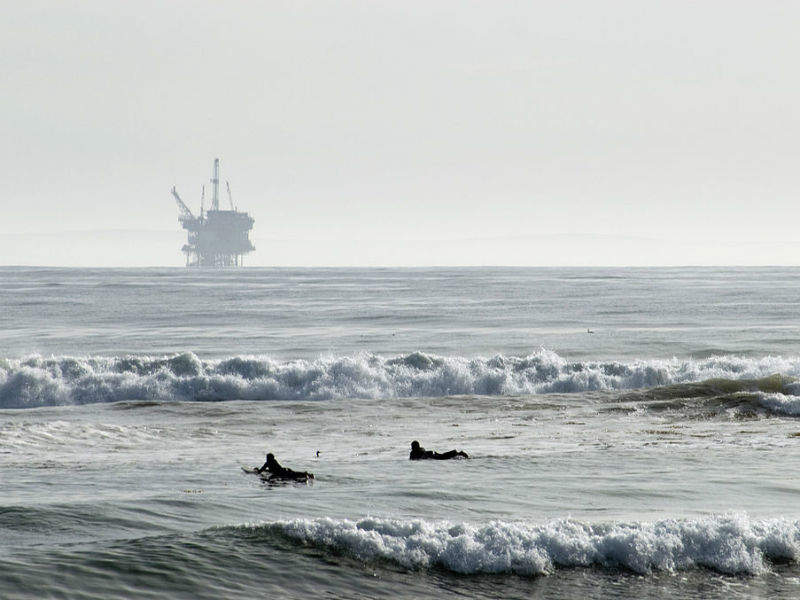
In his budget proposal A New Foundation for American Greatness, US President Trump made good on his campaign promise to increase offshore oil and gas exploration and production. This was further supported in April when he signed an executive order, which repealed his predecessor’s ban on new leases for oil and gas drilling in the Pacific, Arctic and other regions until 2022.
“This executive order starts the process of opening offshore areas to job-creating energy exploration,” Trump said before signing the order. “It reverses the previous administration’s Arctic leasing ban … and directs Secretary [of the Interior Ryan] Zinke to allow responsible development of offshore areas that will bring revenue to our treasury and jobs to our workers.”
The development phase of the National OCS Oil and Gas Leasing Program 2019-24 officially launched on 3 July when the first step, a request for information, opened the comment period.
The executive order, the budget proposal, and the resultant leasing plan have been followed by a flurry of opposition from environmental groups, senators and citizens up and down the Atlantic and Pacific coasts. Fear of environmental damage along with the knock-on effects upon tourism and the fishing industry has fuelled their opposition, but what this can achieve remains uncertain.
The Atlantic
One of the staunchest opponents to increased exploration is North Carolina’s Governor Roy Cooper. “There is a threat looming over this coastline that we love and the prosperity it brings, and that’s the threat of offshore drilling,” Cooper said. “As governor, I’m here to speak out and to take action against it. I can sum it up in four words: Not off our coast.”
Cooper’s response to the licensing was quickly praised by environmental organisations. “Today Governor Cooper sent a strong, clear message to the Trump administration and the fossil fuel industry that our coast is not for sale,” said the NC Sierra Club’s coastal coordinator Erin Carey. “The natural beauty and economic engine North Carolina’s coast represents is worth more than potential profits for oil companies. We thank Governor Cooper for his leadership and we support him in protecting our fragile marine ecosystem and our thriving coastal communities.”
How well do you really know your competitors?
Access the most comprehensive Company Profiles on the market, powered by GlobalData. Save hours of research. Gain competitive edge.

Thank you!
Your download email will arrive shortly
Not ready to buy yet? Download a free sample
We are confident about the unique quality of our Company Profiles. However, we want you to make the most beneficial decision for your business, so we offer a free sample that you can download by submitting the below form
By GlobalDataVirginia’s Governor Terry McAuliffe unexpectedly proclaimed his opposition, having supported the oil and gas industry previously, for economic reasons. In a letter to the US Bureau of Ocean Energy Management, he stated: “In the absence of willingness by the federal government to work together and collectively reap the rewards of that collaboration Virginia is left with only one option… The program as proposed does not adequately protect Virginia’s interests and we hope you will heed our request to exclude our coastal areas.”
The governors from every East Coast state from New Jersey to South Carolina have now stated their opposition to offshore oil and gas leasing. Some 135 East Coast municipalities, along with more than 41,000 businesses and 500,000 fishing families, have also joined the fight against increased exploration. The value brought by the tourism and fishery industries, and the fear of a repeat of the Gulf of Mexico’s 2010 Deepwater Horizon tragedy appear to outweigh a desire to unlock oil wealth on the Atlantic coast.
The Pacific
On the Pacific coast, California’s objection to drilling has been fervent. In July, the state of California put forward Senate Bill 188 as part of its ‘resistance’ proposals. These were submitted to protect the state from federal changes pushed by the Trump administration, and covered everything from clean air to Muslim registry.
Senate Bill 188 stated: “The commission shall not enter into any new lease or other conveyance that authorizes the exploration for, or the development and production of, oil or natural gas upon lands owned by the state and under the jurisdiction of the commission that are located seaward of the ordinary high water mark for tidal waterways and the ordinary low water mark for navigable nontidal waterways that would result in the increase of oil or natural gas production from federal waters.”
While several of California’s resistance bills were ultimately successful, 188 was not one of them. Senator Hannah-Beth Jackson, who introduced the bill, has blamed big oil, saying the industry has too much influence in government, and plans to revive the bill next year.
Although the state of Washington has no known oil reserves, it has historically stood with Oregon in opposition to drilling. Oregon Senator Ron Wyden in April joined a number of senators in asking Trump to rethink the leasing. “Allowing drilling anywhere on the East or West coasts would threaten key economic drivers for these states such as fishing and tourism with the risk of an oil spill. Offshore oil spills don’t respect state boundaries and a spill off the coast of one state could easily affect another,” the senators’ letter read.
The coastal economies of the three Pacific states – California, Oregon and Washington – amount to more than $60bn and support 65,000 jobs.
Environment
There has been a marked change in the opinions of the American people in the last decade with regards to the environment and climate change, and this has had a knock-on effect on the popularity of expanding offshore hydrocarbons exploration. A Yale study published this year showed the percentage of Americans who believe in man-made climate change is at its highest rate ever. The study also showed that 75% of Americans now support restricting CO2 emissions.
Environmental charities have been quick to condemn the Trump administration’s continued attempts, and applaud many of the government officials opposing them, such as Governor Cooper.
“North Carolinians don’t want their beach towns turned into oil towns,” Oceana said in July. “From the industrialization of coastal communities to the looming risk of another BP Deepwater Horizon-like disaster, offshore drilling would forever change the fabric of the American Atlantic, threatening thriving coastal economies and lucrative industries like tourism, recreation and fishing.”
“Along the Atlantic coast, nearly 1.4 million jobs and over $95bn in gross domestic product rely on healthy ocean ecosystems,” Oceana continued. “In North Carolina alone, fishing, tourism and recreation support roughly 51,000 jobs and generate nearly $2.2bn in GDP.”
The environmental threats of offshore exploration include seismic surveys, damage to ecosystems due to platform construction and oil spills and gas leaks. Nevertheless, the offshore industry argues that it goes to every effort to protect the environment while providing an essential fuel.
“Offshore production is a highly-regulated process that is underscored by advanced technological innovation and a commitment to our environment and safety,” says Independent Petroleum Association of America (IPAA) senior vice president of government relations and political affairs Dan Naatz.
The benefits of licensing
The motivation to continue expansion of offshore drilling is economic. The US already produces an estimated 13.5 million barrels of petroleum per day. Since 2011, the US has been a net exporter of non-crude oil petroleum liquids and refined petroleum products. Despite the crash in oil prices, it remains an important commodity.
“IPAA has long advocated for opening access to all areas of the Outer Continental Shelf (OCS), including the Eastern Gulf of Mexico, the mid-Atlantic, and Alaska’s waters,” says Naatz. “In 2009, investment offshore by America’s independent producers accounted for $38bn in economic benefits, more than 200,000 jobs, and $10bn in federal and state revenue and royalty payments. Taking exploration areas off the table would only hurt America’s true energy potential at the detriment of the communities that need it most – and the well-paying U.S. jobs, royalty dollars, and national energy security that come along with it.”
But it has been argued that increased offshore oil and gas production would not necessarily provide economic benefits to the American people. Despite natural gas being the biggest source of electricity, increased production may just incentivise a shift from renewable fuels as opposed to lowering bills. Similarly, an Associated Press analysis of 36 years of data found that “more oil production in the United States does not mean consistently lower prices at the pump”.
The National OCS Program 2019-24 received over 800,000 comments during its 45-day request for information, the majority of which urged the government to rethink the licensing. But with Trump at the helm, the offshore oil and gas sector seems likely to plough ahead in search of economic return.






